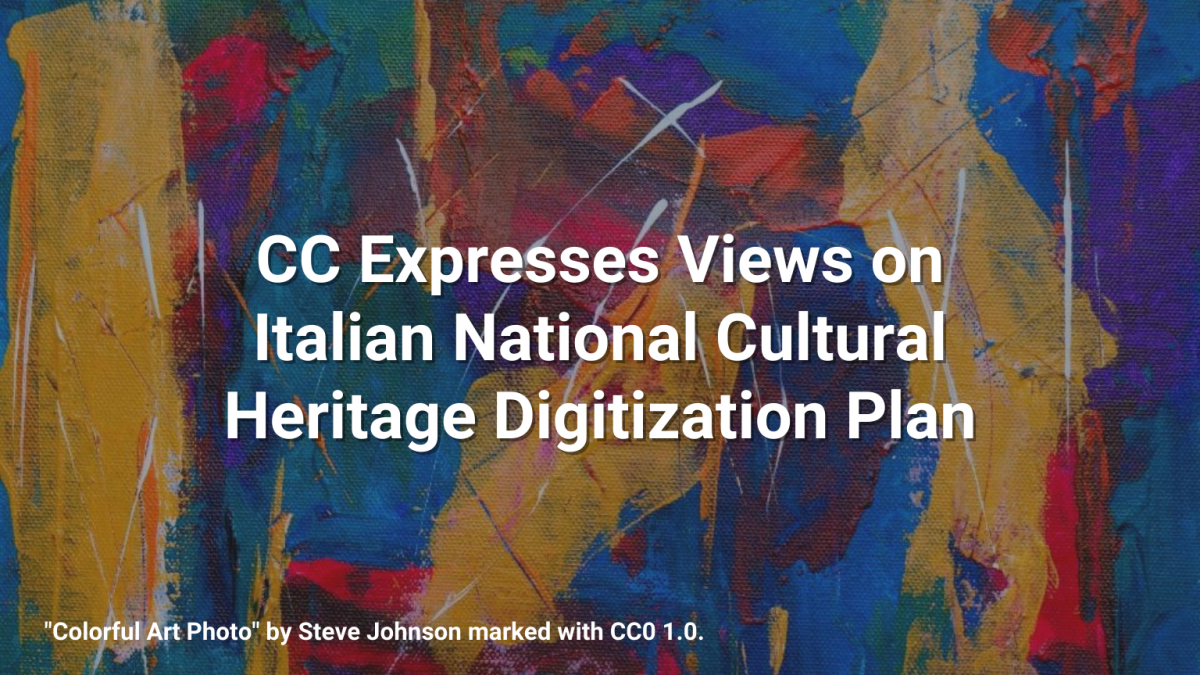A few weeks ago, the Italian Ministry of Culture issued itsNational Cultural Heritage Digitization Plan 2022-2023 – Guidelines for the acquisition, sharing and reuse of digital cultural heritage reproductions.
While the Plan is welcome as an important step towards the digital transformation of cultural heritage institutions (CHIs), it risks nonetheless restricting, rather than increasing, access to and use of cultural heritage, and having a serious detrimental effect on the public domain, creators’ participation in generative creativity, and society as a whole.
Together withCC’s Italian Chapter, we have prepared a statement to address crucial points of concerns raised in the Plan, namely:
- The public domain is being unduly encroached upon by an application of cultural heritage law that unduly limits reuse and creativity opportunities against the public interest. Rather, the public domain must be protected, because it enables essential access to knowledge and culture, and fosters creativity.
- The creation of a bespoke license (MIC Standard) is inadvisable. CC tools are the established standard used by CHIs, and are important legal and communication tools between CHIs and their users. CC licenses and tools have many benefits over tailored licenses or other bespoke standards.
- 通过运用文化遗产法建立的少数付费许可的收入机会无法抵消削弱创造力和文化获取的风险。
We take this opportunity to reaffirm our commitment tobetter sharingof cultural heritageand look forward to continuing to support CHIs across the world in fulfilling their public-interest mission of providing access to their collections as openly as possible, on site and online.
Note: This statement was prepared by Brigitte Vézina, Director of Policy and Open Culture, Creative Commons, Deborah De Angelis, Chapter Lead, CC Italy, and Laura Sinigaglia, Contributor, CC Italy.




